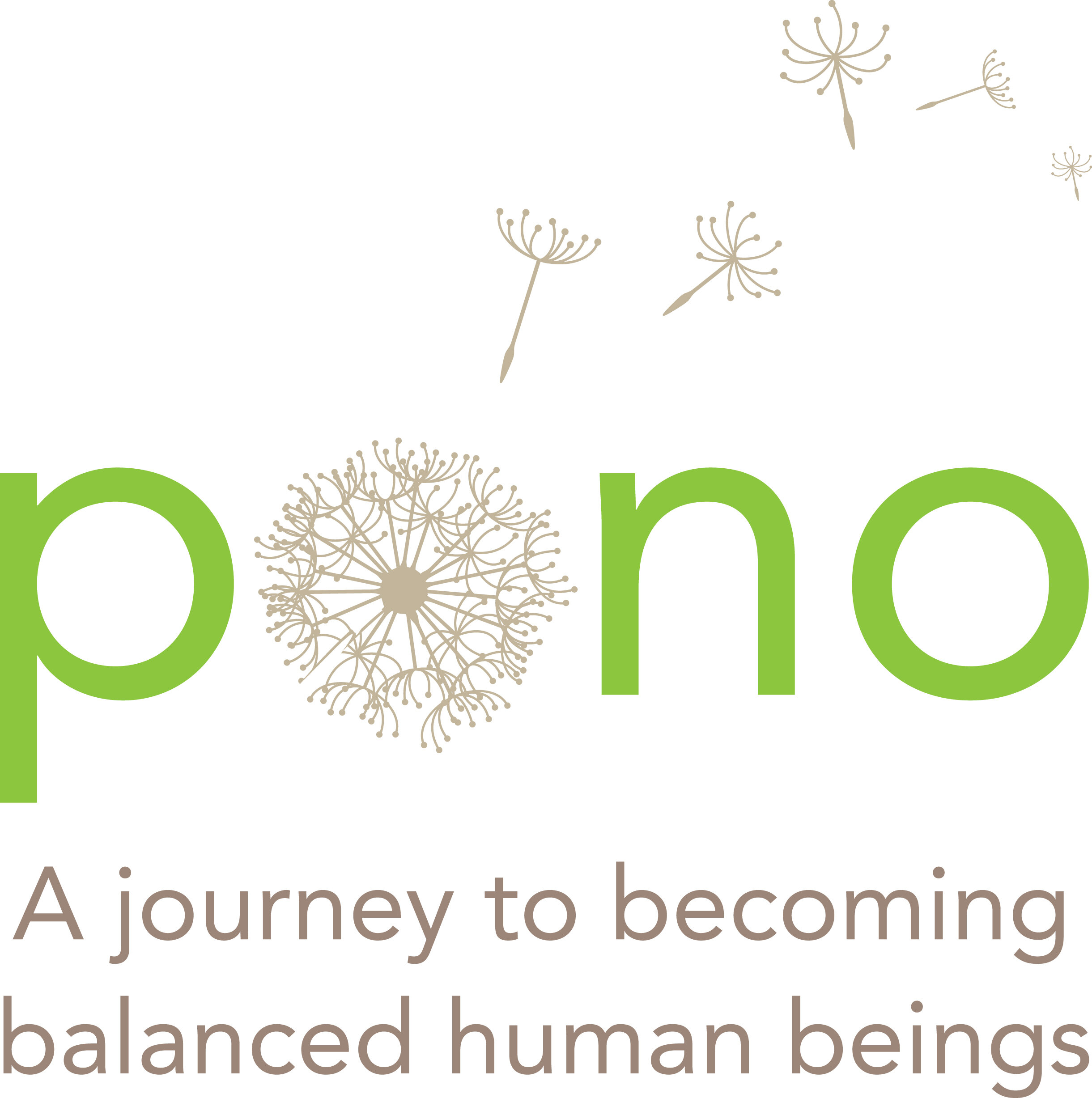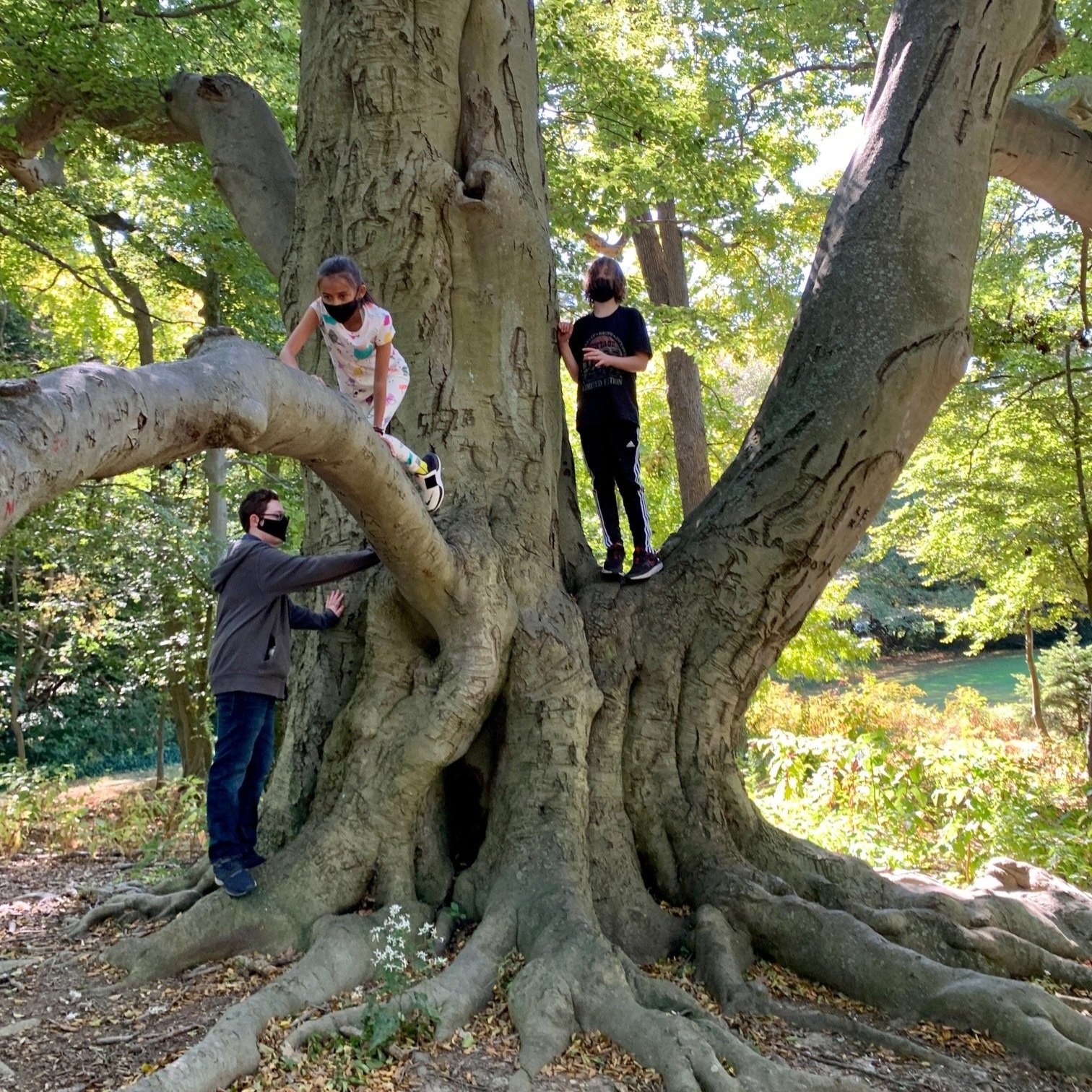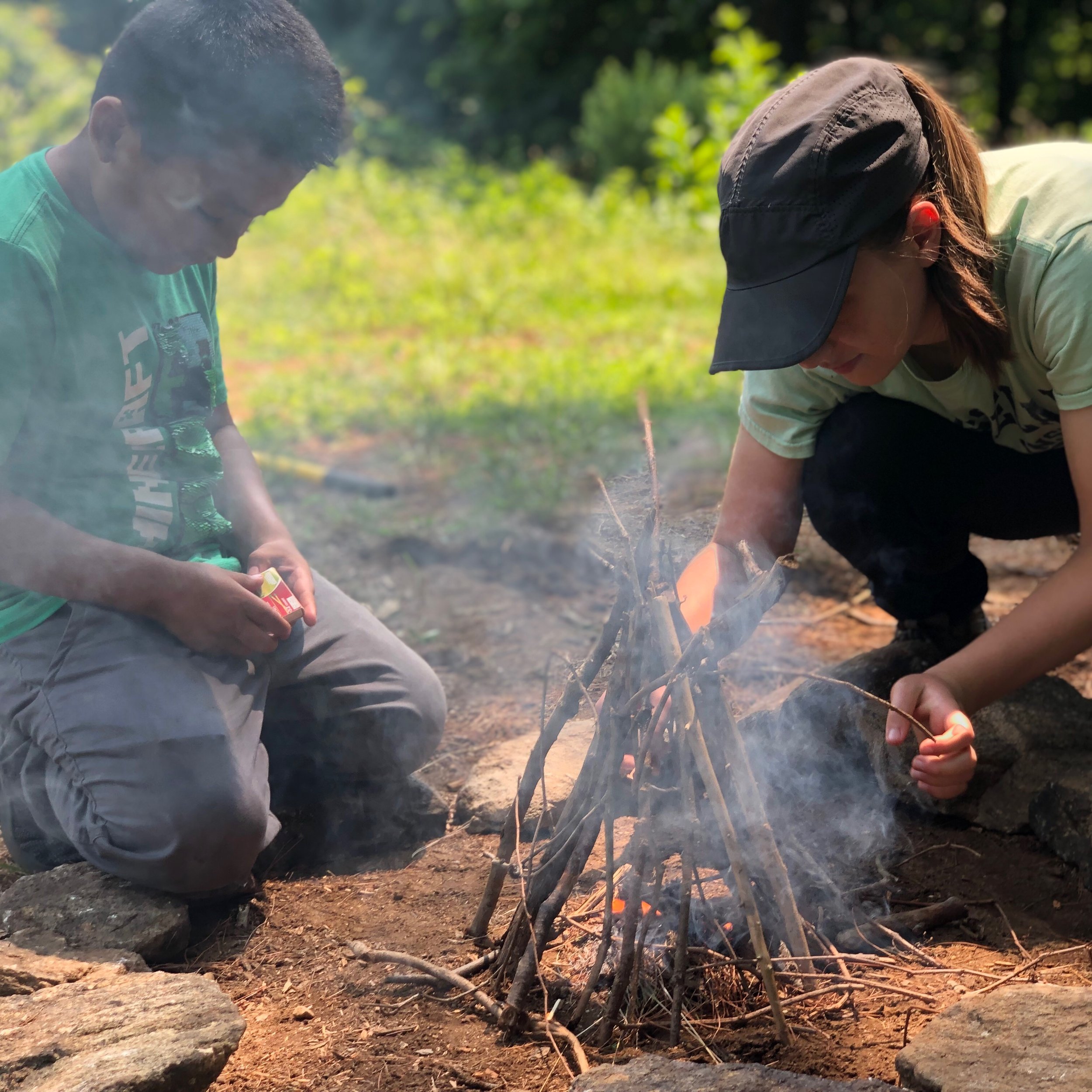
Reimagine what your child's city life can look like
Connecting to nature is a whole-child experience with City to Sanctuary
City to Sanctuary, Pono’s EXTRACURRICULAR year-round outdoor programs deepen children’s connection to nature, all living things, and most importantly, to their own true selves and abilities. Children ages 6 to 12 feel a renewed sense of wonder about the world through experiencing the wilderness in 640 acres of a wildlife preserve.
Children explore the mature forest, streams, ponds, 8.5 miles of hiking trails, woodland, and nature museum at our partner sanctuary in Mount Kisco, NY, while developing a deeper understanding of nature appreciation, preservation, and conservation.
Through open discovery and hands-on lessons and projects designed by educators specialized in environmental studies and curriculum, children engage in the "Best Young Naturalist Program," as named by Westchester Magazine.
Students are divided into small mixed-age groups. They spend their time outdoors in nature and interact only with children in their group, their Pono teachers, and the sanctuary naturalists. All of the Pono teachers and sanctuary naturalists are fully vaccinated. Our social distancing, hygiene, and face-covering protocols are explained below.
Transportation is provided from different New York City locations, including Harlem and Long Island City. Our large and comfortable buses come with conveniences as standard features and allow for social distancing among student groups. Our bus-related safety measures are explained below.
What our parents are saying
“We’re thrilled with the program and excited for [my daughter] to continue!”
“As a city kid, with limited opportunity to interact with nature, the program expands his world, his senses and respect for the world around him.”
“Pono has been an amazing learning experience for my daughter.... The teachers are highly skilled and multidisciplinary... Also, as there are kids of different ages, they collaborate and help each other. I highly recommend Pono to all kids.”
“I must say this program was a godsend for us, especially nowadays in this environment. When [my son] gets home he tells me what they did for the day, and I get to see it with beautiful pictures online. I’m excited for him... It brings comfort that I know my son is in good hands. ””
“After a few times visiting, I started to understand the very subtle but magical experience the children were having. It was changing their ways of seeing, knowing and relating to everything around them… It’s like a corner of our neighborhood that we can always visit to re-center ourselves.”

Let your child and nature connect
What our educators are saying
“Over the past ten years, I have witnessed again and again the healing effect nature has had on my child and more than 70 other children. It made me a believer in the power of the mysterious beauty of nature. Taking in the wilderness rekindles that seed of wonder and awe in a child’s psyche. It forces all of the unpleasant noise and disturbing imbalance out and helps engender a feeling of peace and harmony with all forms of life. Nature uplifts the children’s souls, minds, and spirits. It deepens their connection not only to all living things but most importantly to their own true selves and abilities. ”
“Pono students are more understanding of the uniqueness of discovery in Westmoreland Sanctuary’s ecosystem. They express joy and wonderment for the tiny things that often go unnoticed or are commonly seen as unimportant.”

Our story
Pono is New York City’s only outdoor democratic education center. It was founded in 2010 by a parent, educator, and education researcher in response to the need for an alternative school option for her daughter and other children that would protect children’s innate curiosity, genius, wonderment, and drive to explore and grow. Since it opened, more than 70 children ages 2 to 16 years old from different neighborhoods and boroughs of New York City have joined Pono's educational program. Pono students spend at least half of their time out of the classroom in and around New York City. Children design the curriculum through a process that respects and reflects their varied individual learning interests, and they govern their learning community through a democratic process.
Kindness, Respect, and Inclusion
Imaginary play, open discovery, and participating in a community of kindness, respect, and inclusion are essential. In our daily interactions, we value freedom not license, collaboration not competition, resolving conflict through agreement not punishment.
City to Sanctuary Lessons
The naturalists at our partner sanctuary design lessons that foster a deeper understanding of nature appreciation, preservation, and conservation. Lesson topics include the local area’s flora and fauna, seasonal changes, pond and forest ecology, animal anatomy, biomimicry, survival skills, conservation efforts, and basic chemistry. Small-sized groups allow students to ask questions, share observations, and recognize patterns in their natural surroundings while creating friendships.
City to Sanctuary Educators
The role of our teachers is to nurture, guide, and support the interests and natural development of the children. Our low child-to-teacher ratio and small-sized student groups ensure that children get the individual guidance and support they need. In the City to Sanctuary Program, children will interact with educators specialized in environmental studies and curriculum, with up to 30 years of teaching experience.
HELP NYC PUBLIC SCHOOL CHILDREN HAVE A CONNECTION TO NATURE
ACCESS TO WILDERNESS AND NATURE IS NOT ONLY AN ENVIRONMENTAL INEQUALITY ISSUE BUT A BASIC CHILD RIGHT.
It is proven that a connection to nature has powerful effects on children’s development and mental health. Yet, children in inner-city neighborhoods are getting less time outdoors than prison inmates; fewer than 1 in 10 children regularly play in wild spaces; and, 4 out of 5 children do not have an adequate connection with the natural world.
PARTNER UP WITH PUBLIC SCHOOLS
The need for inner-city public school children to connect with nature is recognized as a necessity by parents, teachers, and administrators. Our partner public schools in Harlem are committed to collaborating with donors to provide Pono’s City to Sanctuary’s outdoor education on a monthly basis to their students.










